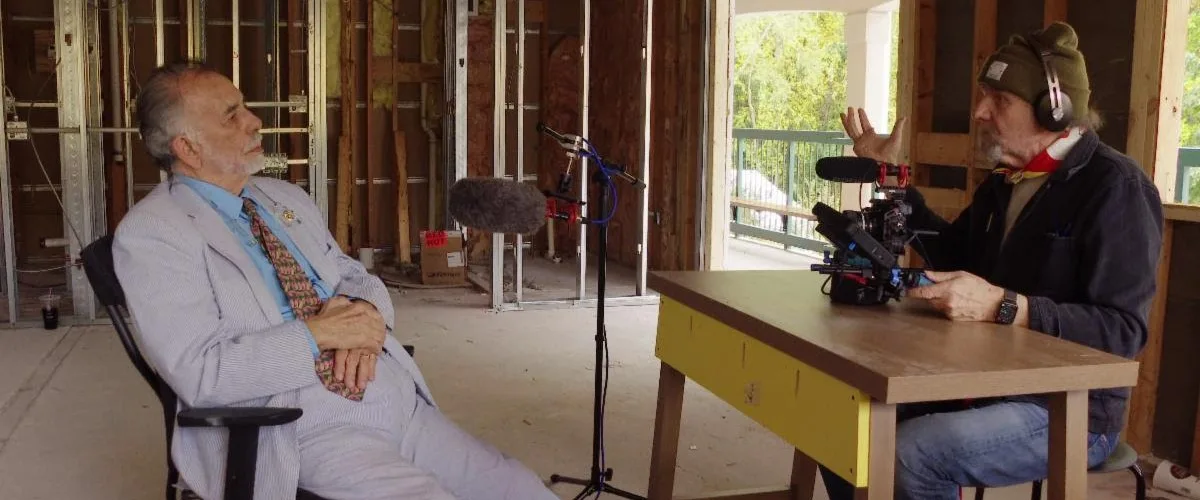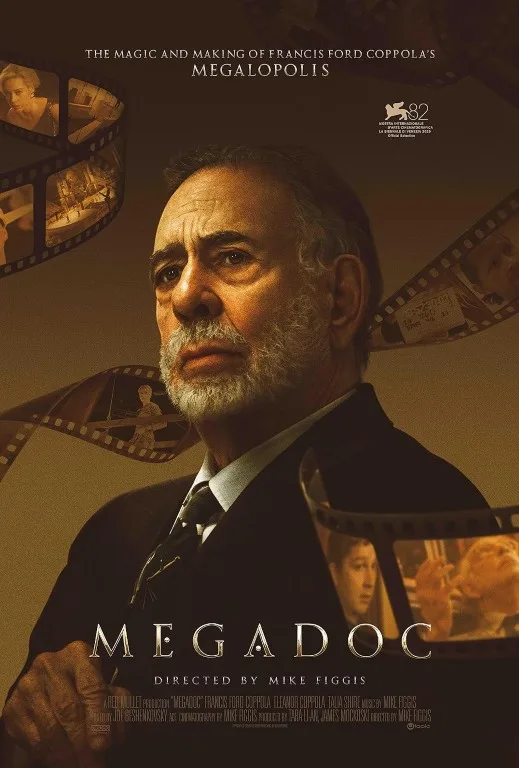In the fall of 1998, I had breakfast in New York City with Francis Ford Coppola. The occasion was this: he had called my boss, the editor-in-chief of Premiere magazine, requesting a meeting. My boss didn’t ask the purpose of the meeting, but reasonably surmised that it would be a good thing to agree to. He requested I tag along because, he jokingly figured, “it would be good to have someone who knew a lot about movies” with him. I leapt at the chance.
We convened at a little joint on Elizabeth Street, technically SoHo but close to Little Italy, and enjoyed a hearty breakfast. Coppola held forth on a number of topics, hewing close to a theme, that being how unfairly Premiere had treated him over the years. He cited articles, and then laid into “That KID, Peter Biskind” (Biskind was, and is, two years Coppola’s junior), whose book, Easy Riders, Raging Bulls, Coppola claimed, was filled with inaccurate information. “A hot tub? I’ve never had a hot tub!” Sorry, Peter, but I believe Francis. After he vented, he mellowed out and let us know that he was holed up in New York for a very specific reason: he was working on a script for a dream project, a vision of and parable on the future of civilization, urban civilization that is, which he called, yes, “Megalopolis.”
Let’s do the math. That was a quarter-century ago. Last year, Coppola unveiled his completed “Megalopolis”—a film he spent around $120 million of his own money on—to the world. The work seems to have been greeted with an enormous collective “huh?” by both critics and audiences. I’m a little stymied that he’s since refused to issue any kind of home-viewing option for it. I mean, I understand his reasoning, but I’d really like to watch the movie again despite having been rather confounded by it myself. I think at the time I mentioned that star Adam Driver ought to be awarded the Nobel Peace Prize for enduring/indulging his director’s every whim.
It’s perhaps telling that Driver is a non-participant in “Megadoc,” the inside look at the making of Coppola’s simultaneous white-elephant/termite art opus. Co-stars Aubrey Plaza and perennial problem child Shia LaBeouf sit down for interviews, and they’re…interesting, collectively. Plaza is, of course, witty and delightful and self-aware, while LaBeouf is…well, it’s interesting. I’ve not warmed to him or his work in recent years, but I found him mildly sympathetic here; underneath his self-regard, one can see a wounded being and a genuinely conscientious performer trying to assist in the vision of a creator he clearly reveres.
Director Mike Figgis apparently became the official documentarian because he was hanging around the Atlanta set during preproduction, and he just…asked. He makes not infrequent appearances in the picture himself and occasionally narrates. Unsurprisingly, he’s invested in achieving fly-on-the-wall status as the man who made “The Godfather,” “The Conversation,” “The Godfather Part 2,” “Apocalypse Now,” and a score of under-appreciated and underrated pictures over the years (when I met him he was about to unleash “Jack” on to the world, and to be honest, every now and then I think maybe I should give that Robin-Williams-starrer another chance) works his directorial magic anew. Marshalling the troops in what looks like a college gymnasium, Coppola insists that while “Megalopolis” is serious business, he wants to move forward in an atmosphere of play. Toil produces nothing, he insists; play is all. He has an active give and take with the actors, who nevertheless can exasperate him. On set with Jon Voight, who worked with Coppola in 1997’s “The Rainmaker” (Voight also worked with LaBeouf on that actor’s breakthrough picture, 2003’s “Holes”), he responds “whatever” when Voight expresses skepticism over a point of staging.
“What do I want out of this?” Not money, not fame, not Oscars, none of that. “I already got Oscars,” Coppola tells Figgis. What he wants, he says, is “fun.” But as it turns out, having fun involves a certain amount of…effort, for lack of a better word. And uncertainty. The actors have come to this project with a knowledge of Coppola’s history. “Keitel got fired,” one of them notes, remembering the initial lead actor of “Apocalypse Now.” “And he got fired a month in.” And it’s not as Coppola’s temperament has gotten sunnier since then. “I’m telling you, Mike, I’m too old and grumpy for this kind of work.”
Off set, Coppola’s wife Eleanor, who died only days before the Cannes premiere of “Megalopolis,” and longtime friend and collaborator George Lucas weigh in on Coppola’s risk-taking in both life and art. “Does he like brick walls?” Figgis asks Lucas. “Yeah,” Lucas responds. “So when he lands on his head, I’m not surprised.” Watching Coppola land on his head and then pick himself back up again and point himself at another brick wall is ultimately strangely inspiring.




















